SWEDISH
SOUTH ASIAN STUDIES NETWORK
Newsletter 112:
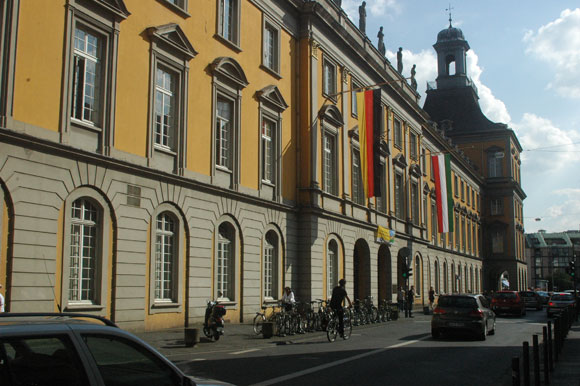 17 August 2010
17 August 2010
| Educational News |
| Lectures and seminars |
| Business and Politics |
| South Asia related Culture |
| New and updated information |
• 26 young Nordic scholars participate in SASNET’s Falsterbo conference
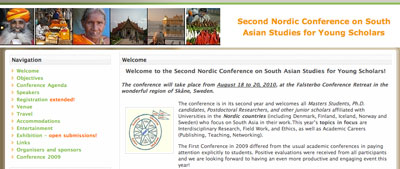 The second SASNET conference on
South Asian Studies for young Nordic scholars will be held in Höllviken, south of Malmö, on 18–20 August 2010.
The second SASNET conference on
South Asian Studies for young Nordic scholars will be held in Höllviken, south of Malmö, on 18–20 August 2010.
26 masters students, PhD candidates and recent PhDs from Sweden, Denmark, Norway and Finland will participate in the three-day conference focusing on three major issues: Interdisciplinary Research; Field Work and Ethics; and Academic Career (Publishing, Teaching, Networking).
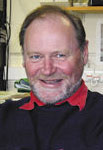 The keynote speaker will be Prof. Emeritus Graham Chapman (photo) from the Dept. of Geography, Lancaster University, UK. Other main speakers will be
Dr. Sirpa Tenhunen, Department of Social and Cultural Anthropology, University of Helsinki, Finland; Mr. Teddy Primack, Director of Academic Documents Associates, USA; Associate Professor Jan Vang, Department of Production, Aalborg University, Denmark; Dr. Anna Godhe, Department of Marine Ecology, University of Gothenburg; and Dr. Maria Lantz, Department of Art & Architecture, Royal University College of Fine Arts (KKH), Stockholm.
The keynote speaker will be Prof. Emeritus Graham Chapman (photo) from the Dept. of Geography, Lancaster University, UK. Other main speakers will be
Dr. Sirpa Tenhunen, Department of Social and Cultural Anthropology, University of Helsinki, Finland; Mr. Teddy Primack, Director of Academic Documents Associates, USA; Associate Professor Jan Vang, Department of Production, Aalborg University, Denmark; Dr. Anna Godhe, Department of Marine Ecology, University of Gothenburg; and Dr. Maria Lantz, Department of Art & Architecture, Royal University College of Fine Arts (KKH), Stockholm.
The Höllviken conference
is a follow-up to the successful conference on the same topic that SASNET arranged last year (more information). It proved to make a difference from the standard academic conferences and paid attention explicitly to the students. Something that was evaluated very positively from all participants .
The 2010 conference will again be held at Falsterbo conference retreat (Falsterbo kursgård) in Höllviken.
More information on the conference web page.
See the full programme in the conference folder.
• SASNET Report on the 21st ECMSAS conference in Bonn
 The 21st European Conference on (Modern) South Asian Studies, ECMSAS, was successfully organised by the University of Bonn on 26–29 July 2010. More then 300 scholars involved in research related
to the South Asian region participated in
the conference, featuring a total number of 41 panels,
covering a broad range of research subjects. SASNET’s deputy director Lars Eklund participated in the conference. He has posted on SASNET’s web site a personal report full with photos. Go for Lars’ report from Bonn.
The 21st European Conference on (Modern) South Asian Studies, ECMSAS, was successfully organised by the University of Bonn on 26–29 July 2010. More then 300 scholars involved in research related
to the South Asian region participated in
the conference, featuring a total number of 41 panels,
covering a broad range of research subjects. SASNET’s deputy director Lars Eklund participated in the conference. He has posted on SASNET’s web site a personal report full with photos. Go for Lars’ report from Bonn.
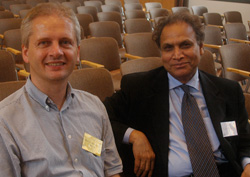 The conference convener was Dr. Heinz Werner Wessler, scientific collaborator at the Institute for Oriental and Asian Studies, University of Bonn, but also since last year connected to the Department of Linguistics and Philology, Uppsala University, Sweden as a guest Professor in Hindi.
The conference convener was Dr. Heinz Werner Wessler, scientific collaborator at the Institute for Oriental and Asian Studies, University of Bonn, but also since last year connected to the Department of Linguistics and Philology, Uppsala University, Sweden as a guest Professor in Hindi.
Prof. Sukhadeo Thorat, Chairman for the Indian University Grants Commission had been invited to hold the Ambedkar Lecture. His engaged presentation was entitled ”Identity, Social Exclusion and Deprived Groups. Search for Inclusive Society in Contemporary International Context”.
(Dr. Heinz Werner Wessler and Prof. Sukhadeo Thorat seen on the photo)
The ECMSAS conferences are held biannually under the aegis of the European Association of South Asian Studies (EASAS), a professional, non-profit organisation of scholars engaged in research and teaching concerning South Asia with regard to all periods and fields of study.
The council of the EASAS consists of a president (Prof. Roger Jeffery, University of Edinburgh, UK), vice-president and treasurer, and in addition, of six other European members reflecting the various academic disciplines represented by the Association. At EASAS’ General Meeting, held on 27 July 2010, SASNET’s Director, Dr. Anna Lindberg, was elected to become one of the new members to the council for the two-year period 2010-12. More information about EASAS.
• More information about SASNET and its
activities
See SASNET’s page, http://www.sasnet.lu.se/sasnet.html
• Decisions about new Erasmus Mundus Asia Regional mobility programme lots
 On Friday 9 July 2010, the European Commission, through its Education, Audiovisual and Culture Executive Agency (EACEA) decided upon the 2010 Erasmus Mundus Action 2 – Strand 1 – Partnership programme. Deadline for submission of applications was 30 April 2010. Each selected partnership project will have a mobility flow of 100 individuals, and a budget of Euro 2.475 m.
On Friday 9 July 2010, the European Commission, through its Education, Audiovisual and Culture Executive Agency (EACEA) decided upon the 2010 Erasmus Mundus Action 2 – Strand 1 – Partnership programme. Deadline for submission of applications was 30 April 2010. Each selected partnership project will have a mobility flow of 100 individuals, and a budget of Euro 2.475 m.
See the full list of selected 2010 Erasmus Mundus Action 2 – Strand 1 – Partnership programmes.
The detailed lists of the new Erasmus Mundus Partnership projects will be updated by September 2010 to include descriptions of all projects and the universities that participate in each consortium, besides giving links to their respective websites. Go for this EACEA web page.
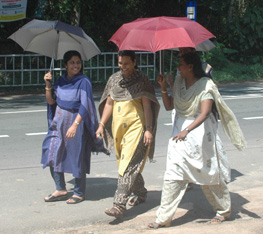 http://open.spotify.com/user/sasnet/playlist/1TC7WlxxfaWFXEtXPn8nr8This is a follow-up programme to the previous mobility scheme entitled Erasmus Mundus External Cooperation Window (EMECW). This programme has been running for some years now with an aim to foster co-operation between higher education
institutions and the exchange of students, researchers and academic staff between EU Member States
and targeted so-called Third countries, including India and the rest of South Asia.
http://open.spotify.com/user/sasnet/playlist/1TC7WlxxfaWFXEtXPn8nr8This is a follow-up programme to the previous mobility scheme entitled Erasmus Mundus External Cooperation Window (EMECW). This programme has been running for some years now with an aim to foster co-operation between higher education
institutions and the exchange of students, researchers and academic staff between EU Member States
and targeted so-called Third countries, including India and the rest of South Asia.
Full information about existing South Asia related EMECW/Erasmus Mundus Action 2 projects.
Ten European-Asian university consortiums were now selected for the Asia Regional lots, No 11 and 12. They differ from the previous EMECW programmes in being strictly one-way mobility programmes, from Asia to Europe, not vice-versa.
Lot No. 11 is primarily devoted to South Asia, where the proposals should include universities in at least three of the following group A countries: Afghanistan, Bhutan, Nepal, Pakistan, and Bangladesh; besides at least two of the following group B countries:
Sri Lanka, India, Indonesia, Malaysia, Maldives, Philippines, Thailand, China, and North Korea.
Lot No. 12 on the other hand is primarily devoted to
South-East Asian countries, but also also gives the possibility to include Sri Lanka, India and/or Maldives as group B countries.
• Lund University selected to coordinate Europe/South Asia/China mobility programme
 Lund University (LU) , that already successfully coordinates one of the existing Indo-European Erasmus Mundus Action 2 programmes, was now again selected to coordinate one of the five new Lot 11 projects.
Lund University (LU) , that already successfully coordinates one of the existing Indo-European Erasmus Mundus Action 2 programmes, was now again selected to coordinate one of the five new Lot 11 projects.
This consortium consists of 20 universities, eight in Europe and 12 in Asia, out of which five are in China (Peking, Tsinghua, Fudan, Zhejiang and Xiamen universities), and four in India (Delhi University; Jadavpur University, Kolkata; Indian Institute of Technology Kanpur (IITK); and Tata Instititute of Social Sciences, Mumbai).
The remaining South Asian partner universities in the LU-led consortium are Karachi University, Pakistan; Tribhuvan University, Nepal; and Jahangirnagar University, Savar, Bangladesh. The project will be open for applications from November 1, 2010 and remain open until December 15. A first consortium meeting is planned to take place in Lund 23–24 September 2010. SASNET is closely involved in the planning for the programme. The project coordinator is Elisabeth Axell, International Relations, Lund University.
Four other university consortiums were also selected for Lot 11. They are coordinated by the following European universities:
– University of Deusto, Bilbao, Spain
– Karl August University, Göttingen, Germany
– University of Nice Sophia Antipolis, France
– University of Rome Sapienza, Italy.
Five consortiums were also selected for the South-East Asia oriented Lot No 12 (that still may include South Asian partner universities). They are coordinated by the following European universities:
– Ghent University, Belgium
– University of Science and Technology 2, Montpelier, France
– University of Nice Sophia Antipolis, France
– University Lumiere Lyon 2, France
– Czech University of Life Sciences, Prague, Czech Republic
• CLEAR calls for Expressions of Interest to host a South Asia regional centre
 CLEAR (Centers for Learning on Evaluation and Results) is a multiregional initiative by the World Bank, whose goal is to contribute to strengthening the monitoring, evaluation, and results-based management capacity of countries and their governments to achieve development outcomes. The initiative is supported by the African Development Bank (AfDB), the Asian Development Bank (ADB), the Swedish International Development Cooperation Agency (SIDA), the United Kingdom's Department for International Development (DFID), the Independent Evaluation Group (IEG), and the World Bank Group. More information about CLEAR.
CLEAR (Centers for Learning on Evaluation and Results) is a multiregional initiative by the World Bank, whose goal is to contribute to strengthening the monitoring, evaluation, and results-based management capacity of countries and their governments to achieve development outcomes. The initiative is supported by the African Development Bank (AfDB), the Asian Development Bank (ADB), the Swedish International Development Cooperation Agency (SIDA), the United Kingdom's Department for International Development (DFID), the Independent Evaluation Group (IEG), and the World Bank Group. More information about CLEAR.
CLEAR currently invites Expressions of Interest (EOI) from existing academic/training institutions based in South Asia to host a South Asia regional centre, in the same way as similar regional centres are being set up in Africa, East Asia and Latin America, to provide demand-driven, cost-effective, and sustainable capacity development services in monitoring, evaluation, and performance management for countries in each region. CLEAR expects to contribute approximately US$ 400,000 to help the selected institution in South Asia deliver capacity building services that meet regional needs and international quality standards. The majority of the funding must be used within one year.
The South Asia Center will be selected through a two-stage process. A selection committee will shortlist applicants based on the EOIs they provide and invite institutions to present full proposals for the final selection. Proposals that articulate a training strategy designed to achieve long-term client-engagement and impact will be favored. The call for EOI began on August 2, 2010 and the deadline to submit EOIs is August 23. See the Call for Expression of Interest.
• Doctoral dissertation about the Sardar Sarovar project in Gujarat
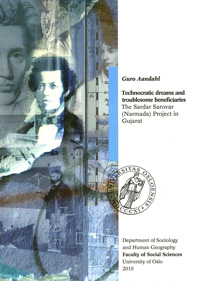
 Guro Aandahl, Centre for Development and the Environment (SUM),
University of Oslo, Norway, defended her dissertation in Human
Geography, entitled ”Technocratic dreams and troublesome
beneficiaries. The Sardar Sarovar (Narmada) Project in Gujarat” on Friday 18 June 2010. The thesis focuses
on the relationship between planning and implementation in the Sardar Sarovar Project (SSP). It
is a study of two areas hitherto neglected in the Narmada research: 1)
the perspectives of the planners and engineers, and 2) the actions and
perceptions of the beneficiaries of the project. By contextualising the
SSP within the history of thinking about, and doing, ‘development’, she
offers a new perspective on the SSP. The opponents were Prof. Stuart Corbridge, Development Studies Institute, London School of Economics and Political Science (LSE); and Dr. Radha D`Souza, School of law, University of Westminister, UK. More information.
Guro Aandahl, Centre for Development and the Environment (SUM),
University of Oslo, Norway, defended her dissertation in Human
Geography, entitled ”Technocratic dreams and troublesome
beneficiaries. The Sardar Sarovar (Narmada) Project in Gujarat” on Friday 18 June 2010. The thesis focuses
on the relationship between planning and implementation in the Sardar Sarovar Project (SSP). It
is a study of two areas hitherto neglected in the Narmada research: 1)
the perspectives of the planners and engineers, and 2) the actions and
perceptions of the beneficiaries of the project. By contextualising the
SSP within the history of thinking about, and doing, ‘development’, she
offers a new perspective on the SSP. The opponents were Prof. Stuart Corbridge, Development Studies Institute, London School of Economics and Political Science (LSE); and Dr. Radha D`Souza, School of law, University of Westminister, UK. More information.
• Scholarships available from French Institute of Pondicherry
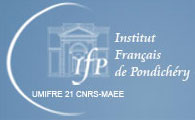 The French Institute of Pondicherry (IFP) in India offers seven doctoral
scholarships in the fields of Ecology, Indology and Social Sciences. The scholarships are open to people of all nationalities who wish to work on
a topic that is in relation with the research programmes conducted at the
IFP. More information on the research programmes.
The French Institute of Pondicherry (IFP) in India offers seven doctoral
scholarships in the fields of Ecology, Indology and Social Sciences. The scholarships are open to people of all nationalities who wish to work on
a topic that is in relation with the research programmes conducted at the
IFP. More information on the research programmes.
The scholarships are of
different kinds: – One international scholarship of a two-year duration, which is addressed to doctoral students registered in a
university of a Northern highly developed country and who wish to work at the IFP, which
must be the main host laboratory for the thesis; – Two ”sandwich” scholarships of a two-year duration, which is addressed to doctoral students registered in a
university of a Northern highly developed country or in an Indian university, and who
wish to work alternately with the IFP and a second host laboratory,
situated in the North; and – four local scholarships of a two-year duration, which is addressed to doctoral students registered in an
Indian university and who wish to work at the IFP, which must be the
main host laboratory for the thesis. Deadline for submitting applications is 30 September 2010.
More information on the IFP scholarships.
• Research fellowship in Buddhist studies in Oslo
University of Oslo, Norway announces a Doctoral research fellowship in Buddhist studies, a position available for a period of three years. This fellowship is open to projects from a wide range of disciplinary and
methodological approaches, such as religious studies, anthropology, literature,
philology, and history of ideas. Comparative and/or multidisciplinary projects
will be considered positively. Candidates must demonstrate advanced active
skills in at least one relevant Asian language. Experience from working and
doing fieldwork in the area relevant for the candidate’s project will be
considered favourably. The application deadline is 1 October 2010.
• More information about South Asia related
research at Swedish and Nordic universities
See SASNET’s page, http://www.sasnet.lu.se/research.html
• Still time to apply for History of Indian Philosophy course at Södertörn
The School of Culture and Communication, Södertörns högskola, again organises a 15 ECTS course in History of Indian Philosophy starting during the Fall semester 2010. It is the first course of its kind in Sweden. It focuses on the Buddhist, Hindu, Materialist, and Sceptical traditions that have existed in India for a long time, starting with Vedic metaphysical speculations 3,500 years ago, and ends up with today’s postcolonial theories. The course is aimed at students within the humanities, mainly Philosophy, Science of Religion, and from History of Ideas.The contact person is Dr. Anna-Pya Sjödin.
The course starts on September 1, 2010, and it is still possible to apply for it. More information.
• Sustainable
Urban Water and Sanitation training programme at Lund University
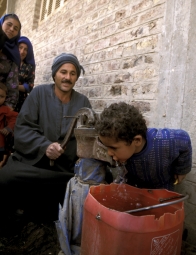
![]() Lund University Education – the university's company for
commissioned education – offers a number of English-language
educational training programmes funded by the Swedish International
Development Cooperation Agency, Sida.
The advanced International training programme on ”Sustainable
Urban Water and Sanitation” has an overall objective
to provide the participants with understanding
and knowledge about the need for integrated approaches and the
organisational and institutional changes that are necessary for
a sustainable provision of water supply and sanitation services
in urban areas. The target group is medium to top level managers and others in a managerial position, working with policy- and development issues within the national urban water and sanitation sector, including public authorities and other local or regional authorities. This includes people with an affiliation to health-, environmental, -waste, -traffic and the city planning sector. From
South Asia, professionals in the field from Bangladesh, India
and Sri Lanka are welcome to apply for this programme. The programme
is managed by staff from the Dept. of
Water Resources Engineering.
Lund University Education – the university's company for
commissioned education – offers a number of English-language
educational training programmes funded by the Swedish International
Development Cooperation Agency, Sida.
The advanced International training programme on ”Sustainable
Urban Water and Sanitation” has an overall objective
to provide the participants with understanding
and knowledge about the need for integrated approaches and the
organisational and institutional changes that are necessary for
a sustainable provision of water supply and sanitation services
in urban areas. The target group is medium to top level managers and others in a managerial position, working with policy- and development issues within the national urban water and sanitation sector, including public authorities and other local or regional authorities. This includes people with an affiliation to health-, environmental, -waste, -traffic and the city planning sector. From
South Asia, professionals in the field from Bangladesh, India
and Sri Lanka are welcome to apply for this programme. The programme
is managed by staff from the Dept. of
Water Resources Engineering.
The next programme starts in August/September 2010 at Lund University, and ends with a regional seminar in one of the participating countries in February/March 2011. But already the plans for the coming programme is finalised. This programme will run during the period February 2011 – August 2012, including a stay in Lund from 28 March 28 – 15 April 2011, and a follow-up seminar in one of the participating countries in October/November 2011.
It is now possible to apply on-line at www.education.lu.se/sida/water for the programme. All applicants still have to send the signed application form to the nearest Swedish embassy. Closing date for applications is 24 November 2010. More
information.
• More information about South Asia related
education at Swedish and Nordic universities
See SASNET’s page, http://www.sasnet.lu.se/education.html
• 5th Annual Nordic NIAS Council Conference in Copenhagen
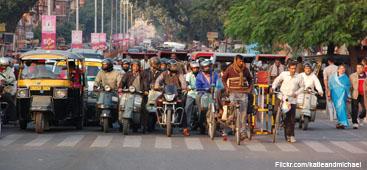 The 5th Annual Nordic NIAS Council Conference will be held in Copenhagen 28–29 October 2010. The theme for the 2010 conference, jointly organised by the Asia Research Centre at Copenhagen Business School (CBS) and the Nordic Institute of Asian Studies (NIAS), will be ”Asia in the 21st Century: Business, Politics and Regional Dynamics”. The conference is then immediately followed by a
Nordic and International PhD Course entitled ”Business, Politics and Regional Dynamics in Contemporary Asia: New Theoretical and Methodological Perspectives”, to be held 30 October – 1 November 2010. International keynote speakers include Dr. Ashwani Saith from the Institute of Social Studies in The Hague, Netherlands. Deadline for both conference and PhD Course is 13th September 2010. Venue: Asia Research Centre, CBS, Dalgas Have 15, Frederiksberg, Copenhagen. More information.
The 5th Annual Nordic NIAS Council Conference will be held in Copenhagen 28–29 October 2010. The theme for the 2010 conference, jointly organised by the Asia Research Centre at Copenhagen Business School (CBS) and the Nordic Institute of Asian Studies (NIAS), will be ”Asia in the 21st Century: Business, Politics and Regional Dynamics”. The conference is then immediately followed by a
Nordic and International PhD Course entitled ”Business, Politics and Regional Dynamics in Contemporary Asia: New Theoretical and Methodological Perspectives”, to be held 30 October – 1 November 2010. International keynote speakers include Dr. Ashwani Saith from the Institute of Social Studies in The Hague, Netherlands. Deadline for both conference and PhD Course is 13th September 2010. Venue: Asia Research Centre, CBS, Dalgas Have 15, Frederiksberg, Copenhagen. More information.
• Colombo conference on Reconciliation & Development
 A conference entitled ”Reflections 2010: Managing Diversity, Reconciliation & Development” will be held in Colombo, Sri Lanka, 1–3 November 2010. It is organised by FLICT (Facilitating Local Initiatives for Conflict Transformation), a project in the field of peace building and conflict transformation based on a bilateral cooperation agreement between the Democratic Socialist Republic of Sri Lanka and the Federal Republic of Germany.
The project is managed by the German Technical Cooperation (GTZ). More information about FLICT.
A conference entitled ”Reflections 2010: Managing Diversity, Reconciliation & Development” will be held in Colombo, Sri Lanka, 1–3 November 2010. It is organised by FLICT (Facilitating Local Initiatives for Conflict Transformation), a project in the field of peace building and conflict transformation based on a bilateral cooperation agreement between the Democratic Socialist Republic of Sri Lanka and the Federal Republic of Germany.
The project is managed by the German Technical Cooperation (GTZ). More information about FLICT.
In the recent past Sri Lanka has seen renewed interest in effective interventions around reconciliation and development. Such efforts will greatly benefit from research and experience sharing. The opportunity presented by the cessation of hostilities, makes this all the more relevant and timely. In this context, the conference is being organized to bring together persons interested in the subject area; practitioners, educators, trainers, students and policy makers – both local and international. The papers presented will cover the following themes, relevant to a post-war situation: – Reconciliation; –
Human Rights; –
Governance; –
Development; –
Diversity; –
Change Management; and –
Gender. Full information about the conference.
• Delhi Universty conference on South Asian Migration
 The Indian Formation Research Society organises a conference on ”Culture, Politics and Economics of South Asian Migration”, 24–26 Novermber 2010 at the University of Delhi, India. The conference focuses on the fact that South Asia is the world's largest and, perhaps, most significant region for migration studies. With a documented history of more than 4,000 years, migration from and within South Asia remains today at the heart of many contemporary global relationships and processes. Yet despite its multi-faceted origins and latter-day importance, South Asian migration has hitherto not received the type of theoretical-empirical study that its contradictory nature demands. This conference posits that South Asian migration has unique characteristics that necessitate a complimentary interdisciplinary and international approach to both conceptualisation and fieldwork. The conference is organised as an interdisciplinary and politically
independent gathering. The organisers are of the opinion that an open
and democratic debate is necessary of the serious challenges faced by
South Asian populations. Deadline for abstracts is 20th
September 2010. Full information about the 2010 conference.
The Indian Formation Research Society organises a conference on ”Culture, Politics and Economics of South Asian Migration”, 24–26 Novermber 2010 at the University of Delhi, India. The conference focuses on the fact that South Asia is the world's largest and, perhaps, most significant region for migration studies. With a documented history of more than 4,000 years, migration from and within South Asia remains today at the heart of many contemporary global relationships and processes. Yet despite its multi-faceted origins and latter-day importance, South Asian migration has hitherto not received the type of theoretical-empirical study that its contradictory nature demands. This conference posits that South Asian migration has unique characteristics that necessitate a complimentary interdisciplinary and international approach to both conceptualisation and fieldwork. The conference is organised as an interdisciplinary and politically
independent gathering. The organisers are of the opinion that an open
and democratic debate is necessary of the serious challenges faced by
South Asian populations. Deadline for abstracts is 20th
September 2010. Full information about the 2010 conference.
The Indian Formation Research Society organizes similar conferences every year in the last week of November at the University of Delhi. The themes are chosen 18 months in advance by the steering committee, on a topic that is of seminal importance for a range of people's struggles. The gathering represents a spectrum of pro-people perspectives, and in years past has attracted a considerable degree of interest from both university-based research scholars and full-time social activists alike. The 2010 gathering builds upon the conference on
'The Character & Trajectory of the Indian Economic Formation in an Era
of Globalisation' (2008) and the conference 'Region Formation in
Contemporary South Asia' (2009).
• Indo-Global Education Summit 2010 in Hyderabad
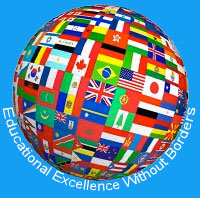 The Indus Foundation, a non-profit making educational organization dedicated to the promotion of higher education in India, organises the
Indo-Global Education Summit 2010 in Hyderabad, India, 3–7 December 2010. This will be a sequel to the Indo-American Education Summit held in 2009. The Summit 2010 will have sessions on Engineering & IT, Business & Management, Life Sciences & Biomedicine, Arts & Humanities, Social Sciences, and Natural Sciences.
The Indus Foundation, a non-profit making educational organization dedicated to the promotion of higher education in India, organises the
Indo-Global Education Summit 2010 in Hyderabad, India, 3–7 December 2010. This will be a sequel to the Indo-American Education Summit held in 2009. The Summit 2010 will have sessions on Engineering & IT, Business & Management, Life Sciences & Biomedicine, Arts & Humanities, Social Sciences, and Natural Sciences.
There will be one-on-one meetings between representatives of foreign universities and those of Indian institutions for academic collaborations. There will also be one-on-one meetings between representatives of foreign universities and Indian students. The Summit 2010 is specifically designed for university chancellors, presidents, provosts, deans, enrollment/recruitment officers, and their executive-level team members. The organisers expect a participation by an estimated 200 top universities from around the World, and 1000 Indian educational institutions.
More information about the Indo-Global Education Summit 2010.
 The US-based Indus Foundation has a network of offices in India covering the major cities including Ahmedabad, Amritsar, Bangalore, Chandigarh, Chennai, Eluru, Hyderabad, Jaipur, Jallandhar, Kakinada, Kanpur, Kochi, Kolkata, Ludhiana, Lucknow, Meerut, Mehsana, Nagpur, Nashik, New Delhi, Noida, Panchkula, Pilibhit, Pune, Sambalpur, Surat, Thane, Trivandrum, Udaipur, Vadodara, Vallabh Vidyanagar, Vijayawada, and Visakhapatnam. Over the years, the Foundation has emerged as a leading recruiter of well-qualified and financially able Indian students for study in foreign universities.
The US-based Indus Foundation has a network of offices in India covering the major cities including Ahmedabad, Amritsar, Bangalore, Chandigarh, Chennai, Eluru, Hyderabad, Jaipur, Jallandhar, Kakinada, Kanpur, Kochi, Kolkata, Ludhiana, Lucknow, Meerut, Mehsana, Nagpur, Nashik, New Delhi, Noida, Panchkula, Pilibhit, Pune, Sambalpur, Surat, Thane, Trivandrum, Udaipur, Vadodara, Vallabh Vidyanagar, Vijayawada, and Visakhapatnam. Over the years, the Foundation has emerged as a leading recruiter of well-qualified and financially able Indian students for study in foreign universities.
• Bangalore conference on Asian Culture Industries
 An International Conference on ”Asian Culture Industries:
A Comparative Study of India, Japan and South Korea” will be held in Bangalore, India, 20–22 December 2010. The conference is organised by the
Centre for the Study of Culture and Society in Bangalore, as part of its ongoing CIDASIA (Culture: Industries and Diversity in Asia) Research Programme, and is supported by Japan Foundation, New Delhi. Scholars working on cinema, television, pop music, animation,
gaming, in Asia in general and India, Japan and South Korea in particular are invited
to send in their proposals. Proposals are also welcome from researchers
working on the recent history of entertainment industries and government
policy towards these industries. Abstracts should be submitted before 30 August 2010. More information about the conference.
An International Conference on ”Asian Culture Industries:
A Comparative Study of India, Japan and South Korea” will be held in Bangalore, India, 20–22 December 2010. The conference is organised by the
Centre for the Study of Culture and Society in Bangalore, as part of its ongoing CIDASIA (Culture: Industries and Diversity in Asia) Research Programme, and is supported by Japan Foundation, New Delhi. Scholars working on cinema, television, pop music, animation,
gaming, in Asia in general and India, Japan and South Korea in particular are invited
to send in their proposals. Proposals are also welcome from researchers
working on the recent history of entertainment industries and government
policy towards these industries. Abstracts should be submitted before 30 August 2010. More information about the conference.
• Joint AAS-ICAS conference at Hawaii in 2011
![]() To celebrate its 70th anniversary, the Association for Asian Studies (AAS) is holding a special joint conference with the International Convention of Asia Scholars (ICAS) in Honolulu, Hawaii, USA, 31 March – 3 April 2011. The 2011 Conference Program will be available online early in 2011, but registration will open on September 15, 2010.
To celebrate its 70th anniversary, the Association for Asian Studies (AAS) is holding a special joint conference with the International Convention of Asia Scholars (ICAS) in Honolulu, Hawaii, USA, 31 March – 3 April 2011. The 2011 Conference Program will be available online early in 2011, but registration will open on September 15, 2010.
The Association for Asian Studies (AAS) is the largest society of its kind, with approximately 7,000 members worldwide, open to all persons interested in Asia. ICAS was launched in 1995 as a joint project between AAS and the International Institute for Asian Studies (IIAS) in Netherlands. This transatlantic dialogue gradually matured and was thought of as a process involving American and European Asia scholars. Its main goals are to transcend the boundaries between disciplines, between nations studied, and between the geographic origins of the Asia scholars involved.
ICAS has grown into the largest biennial Asia studies event outside the US covering all subjects of Asia studies. Thus ICAS now has become the only major, regular Asia studies event to take place in Asia. On average the number of participants varies between thousand and fifteen hundred.
Venue for the joint conference: Hawai'i Convention Center, Kalakaua Avenue, Honolulu. More information.
• US workshop on Friendship in Precolonial South Asia
A two-day workshop on ”History and Cultures of Friendship in Precolonial South Asia” will be held at the University of Pennsylvania, USA, 2–3 May 2011. The workshop will explore the multiple histories and
cultures of friendship in precolonial South Asia. While the history
of friendship has been an important subject for European cultural
historians, it has not yet attracted serious and sustained interest
among scholars of South Asia. It seeks to put this topic
on the intellectual map for cultural and social historians in
precolonial South Asia. The workshop will bring together a group of scholars
working on diverse periods and regions to explore the multiple
histories of friendship through a variety of media and cultural
forms, and in relation to diverse historical contexts, institutional
supports, and wider forms of sociability. The conference conveners are Dr Daud Ali, University of Pennsylvania, and
Dr Emma Flatt,
Nanyang Technological University, Singapore. Abstracts should be submitted before 1 December 2010. More information.
• New Delhi Symposium on Medicine in Princely India
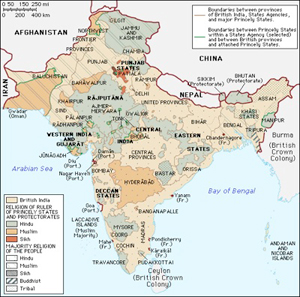 A
Research Symposium on ”Health and Medicine in Princely India” will be held in New Delhi 30–31 August 2011. The symposium is part of the ongoing collaborative research work, funded by The Wellcome Trust, between Prof. W. Ernst (Oxford Brookes University), Dr B. Pati (Delhi University) and Dr T.V. Sekher (International Institute for Population Sciences, Mumbai) on ‘Colonial Medicine and Indigenous Health Practices in Southern and Eastern Princely States of India, c. 1880-1960’.
This symposium brings together researchers working on medicine and health in the former Princely States of India. About two fifths of the Subcontinent was made up of over 500 Indian States. Putting Princely India at the centre of investigation is important because existing scholarship on colonial medicine has been concerned almost exclusively with the regions under direct British control, leading to a distorted conception of the political realities and medical developments during the age of British imperialism. The assessment of developments in 'Indian India' will therefore contribute to a more nuanced understanding of the nature and impact of western medicine. Deadline for submission of abstracts: 31 March 2011. More information.
A
Research Symposium on ”Health and Medicine in Princely India” will be held in New Delhi 30–31 August 2011. The symposium is part of the ongoing collaborative research work, funded by The Wellcome Trust, between Prof. W. Ernst (Oxford Brookes University), Dr B. Pati (Delhi University) and Dr T.V. Sekher (International Institute for Population Sciences, Mumbai) on ‘Colonial Medicine and Indigenous Health Practices in Southern and Eastern Princely States of India, c. 1880-1960’.
This symposium brings together researchers working on medicine and health in the former Princely States of India. About two fifths of the Subcontinent was made up of over 500 Indian States. Putting Princely India at the centre of investigation is important because existing scholarship on colonial medicine has been concerned almost exclusively with the regions under direct British control, leading to a distorted conception of the political realities and medical developments during the age of British imperialism. The assessment of developments in 'Indian India' will therefore contribute to a more nuanced understanding of the nature and impact of western medicine. Deadline for submission of abstracts: 31 March 2011. More information.
• Other conferences connected to South Asian
studies arranged all over the World
See SASNET’s page, http://www.sasnet.lu.se/conferences.html#conf
Important lectures and seminars in Scandinavia
• Inaugural lecture for Stockholm University’s new Masters programme in Asian Studies
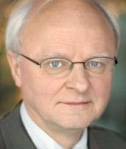 In connection with the inauguration of Stockholm University’s new Masters programme in Asian Studies (with one branch for Central and South Asian studies) – more information – Dr. Börje Ljunggren will hold a seminar on ”Asiens växande betydelse och hur vi möter denna förändring” (The growing importance of Asia, and how do we encounter this change) on Tuesday 31 August 2010, 13.00–14.00.
Börje Ljunggren has been Swedish ambassador to China (2002-06) and Vietnam (1994-97). Over the years he has served in a number of countries in Asia and has also been the head of the Asia Department of the Swedish Ministry for Foreign Affairs and Deputy Director General of the Swedish International Development Cooperation Agency (Sida). Besides, he holds a PhD in Political Science and has published a number of books and articles on Asia. His book ”Asien: vår tids drama” (Asia: the Drama of Time) was published in the spring of 2008. Venue: Dept. of Oriental Languages, Stockholm University, Kräftriket 4B, room 136. More information.
In connection with the inauguration of Stockholm University’s new Masters programme in Asian Studies (with one branch for Central and South Asian studies) – more information – Dr. Börje Ljunggren will hold a seminar on ”Asiens växande betydelse och hur vi möter denna förändring” (The growing importance of Asia, and how do we encounter this change) on Tuesday 31 August 2010, 13.00–14.00.
Börje Ljunggren has been Swedish ambassador to China (2002-06) and Vietnam (1994-97). Over the years he has served in a number of countries in Asia and has also been the head of the Asia Department of the Swedish Ministry for Foreign Affairs and Deputy Director General of the Swedish International Development Cooperation Agency (Sida). Besides, he holds a PhD in Political Science and has published a number of books and articles on Asia. His book ”Asien: vår tids drama” (Asia: the Drama of Time) was published in the spring of 2008. Venue: Dept. of Oriental Languages, Stockholm University, Kräftriket 4B, room 136. More information.
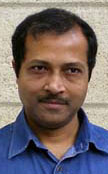 • Copenhagen lecture on Economic Resurgence in India
• Copenhagen lecture on Economic Resurgence in India
Dr. Tirthankar Roy from London School of Economics (LSE) holds a guest lecture at the Asia Research Centre, Copenhagen Business School (CBS), on Monday 6 September 2010, 14.00–15.30. Dr. Roy will speak about ”The Historical Roots of Economic Resurgence in India”, providing a discursive but informed speculation on how economic history might enable us to understand present-day India better. If history is to be useful, it should show, not why India failed, nor why it succeeds, but how such paradoxes could emerge. The talk will address that task. Tirthankar Roy is Reader in Economic History at LSE. He has published extensively, including a widely used student text, The Economic History of India 1857-1947 from OUP India, the revised third edition of which is now under preparation. Venue: CBS, Dalgas Have 15, Frederiksberg, Copenhagen. More information.
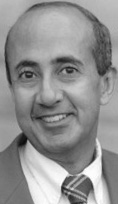 • Rafiq Dossani lectures on Indian higher education
• Rafiq Dossani lectures on Indian higher education
Dr. Rafiq Dossani from Stanford University, USA, holds a guest lecture at Copenhagen Business School (CBS) on ”Understanding the quality and expansion of higher education in India” on Thursday 2 September 2010, 14.00–15.30.
The presentation, organised by the Asia Research Centre at CBS, will cover the quality and expansion of higher education in India. It presents the findings from a survey of 6,000 Indian undergraduate engineering students. We find that India has found a low public-cost model of engineering education. This model is based on private provision and a tuition fee payment that covers costs. While there is considerable variation in quality, there is generally high satisfaction with the system. It will be discussed whether this model is sustainable as India seeks to achieve high standards of teaching and research in future years.
Venue: Room SV108, CBS, Dalgas Have 15, Frederiksberg, Copenhagen. More information.
• International Development Studies 25th Anniversary Conference in Roskilde
 Roskilde University, Denmark invites to its International Development Studies 25th Anniversary Conference, to be held on Friday 10 September 2010. Several prominent researchers, including Stuart Corbridge, Emily Boyd, Jan Nederveen Pietersee, Benedicte Bull and Raymond Bryant, will discuss contending approaches in development studies as well as the origin and character of development studies. After the seminar, entitled ”Development Studies – past, present and future”, Roskilde University will host a reception. Seats are limited so please sign up for the Anniversary Conference and the reception using this link. Venue: Auditorium 0, Roskilde University. Full information.
Roskilde University, Denmark invites to its International Development Studies 25th Anniversary Conference, to be held on Friday 10 September 2010. Several prominent researchers, including Stuart Corbridge, Emily Boyd, Jan Nederveen Pietersee, Benedicte Bull and Raymond Bryant, will discuss contending approaches in development studies as well as the origin and character of development studies. After the seminar, entitled ”Development Studies – past, present and future”, Roskilde University will host a reception. Seats are limited so please sign up for the Anniversary Conference and the reception using this link. Venue: Auditorium 0, Roskilde University. Full information.
• Information about South Asia related lectures and seminars
See SASNET's page, http://www.sasnet.lu.se/conferences.html
Business and Politics
• Information about South Asia related business and politics in Sweden
See SASNET's page, http://www.sasnet.lu.se/polbuss.html
South Asia related culture in Scandinavia
• Indian culture in focus from October till January in Stockholm
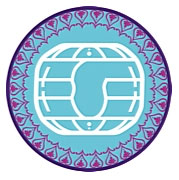 Indian culture in the form of music, dance, film, art and literature will be very much in focus in Stockholm during the period 1 October 2010 – 9 January 2011. In a joint effort by Kulturhuset Stockholm, Södra Teatern, Dansens Hus, Bollywoodbio/Bio Rio, Söderbokhandeln and others, a large number of cultural events will take place. The entire project is entitled ”Indien/Indien”, and offers meetings with several well-renowned Indian artists, writers and poets, film makers, fashion designers, etc. The initiative comes from Erik Sjöström, Head of Kulturhuset, who has invited other organisers in Stockholm to join.
Indian culture in the form of music, dance, film, art and literature will be very much in focus in Stockholm during the period 1 October 2010 – 9 January 2011. In a joint effort by Kulturhuset Stockholm, Södra Teatern, Dansens Hus, Bollywoodbio/Bio Rio, Söderbokhandeln and others, a large number of cultural events will take place. The entire project is entitled ”Indien/Indien”, and offers meetings with several well-renowned Indian artists, writers and poets, film makers, fashion designers, etc. The initiative comes from Erik Sjöström, Head of Kulturhuset, who has invited other organisers in Stockholm to join.
More information about the Indien/Indien project in Stockholm.
You can also join the Facebook fan group: http://www.facebook.com/pages/IndienIndien/, which offers constant updated information.
 Kulturhuset at Sergels Torg
launches an exhibition of 15 contemporary artists with their roots in India and Pakistan. The exhibition, entitled ”Samtidigt”, will be shown during the entire period, and features works by Anita Khemka, Archana Hande, Bharat Sikka, Gigi Scaria, Hema Upadhyay, Nalini Malani, Pushpamala, Reena Saini Kallat, Rashmi Kaleka, Sheba Chhachhi, Shilpa Gupta, Thugral & Tagra, Vivan Sundaram, and Chitra Ganesh. They represent different strains within modern Indian art.
Kulturhuset at Sergels Torg
launches an exhibition of 15 contemporary artists with their roots in India and Pakistan. The exhibition, entitled ”Samtidigt”, will be shown during the entire period, and features works by Anita Khemka, Archana Hande, Bharat Sikka, Gigi Scaria, Hema Upadhyay, Nalini Malani, Pushpamala, Reena Saini Kallat, Rashmi Kaleka, Sheba Chhachhi, Shilpa Gupta, Thugral & Tagra, Vivan Sundaram, and Chitra Ganesh. They represent different strains within modern Indian art.
More information about the art exhibition.
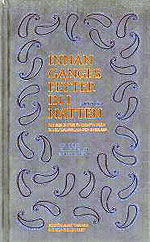 In collaboration with the magazine Karavan and Tranan publishing house, Kulturhuset will also organise an Indian Poetry Evening on Saturday 30 October 2010. The starting point for the event will be the wonderful anthology of Indian poems translated into Swedish entitled ”Innan Ganges flyter in i natten” that was published last year as a project within the framework of the Indian Library project. More information about the project.
In collaboration with the magazine Karavan and Tranan publishing house, Kulturhuset will also organise an Indian Poetry Evening on Saturday 30 October 2010. The starting point for the event will be the wonderful anthology of Indian poems translated into Swedish entitled ”Innan Ganges flyter in i natten” that was published last year as a project within the framework of the Indian Library project. More information about the project.
Two of the Indian poets represented in the anthology, Sujata Bhatt and Adil Jussawalla, will be on spot, along with the editors of the volume (Tomas Löfström and Birgitta Wallin) and Swedish participants in the project – Ann Jäderlund, Marie Lundquist, Lars Hermansson, Arne Johnsson, Niclas Nilsson and Jonas Ellerström, who will read their interpretations of Indian poems they have translated for the anthology. More information about the Poetry Evening.
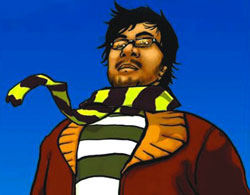 Södra Teatern offers a varied Indian cultural programme from 5 October 2010 and onwards. Besides evenings full of Bhangra and Bollywood music, the theatre will also be the venue for a number of literary and cultural events. See the full programme.
Södra Teatern offers a varied Indian cultural programme from 5 October 2010 and onwards. Besides evenings full of Bhangra and Bollywood music, the theatre will also be the venue for a number of literary and cultural events. See the full programme.
On Tuesday 5 October 2010, a Cult Fiction programme will be organised, featuring the Indian young writers Samit Basu and Anjum Hasan (whose latest book translated into Swedish will be launched during the evening), plus the Swedish turned Indian writer Zac O’Yeah.
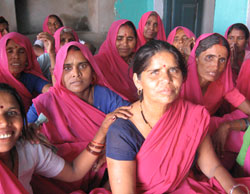 On Sunday 10 October follows an event entitled ”Pink India – Three Indian Women Heroes”, on women’s rights in India. It features Sampat Devi Pal, founder of the Gulabi gang, a feminist Robin Hood movement in north India; the Tamil historian and writer
Ambai; and Urvashi Butalia, who established the feminist book publishing house Kali for Women in 1984.
On Sunday 10 October follows an event entitled ”Pink India – Three Indian Women Heroes”, on women’s rights in India. It features Sampat Devi Pal, founder of the Gulabi gang, a feminist Robin Hood movement in north India; the Tamil historian and writer
Ambai; and Urvashi Butalia, who established the feminist book publishing house Kali for Women in 1984.
On Saturday 16 October 2010, Södra Teatern invites to a discussion talk meeting between the well-known writer Amitava Kumar; Sabrina Dhawan, who wrote the script for the Monsoon Wedding film; and the Indian journalist Hussain Zaidi. The event has been entitled ”The Private Face of Terror and the Public Face of Love”.
• More information about South Asia related culture
in Sweden and Scandinavia
See SASNET’s page, http://www.sasnet.lu.se/culture.html
New and updated items on SASNET web site
• Swedish departments where research on
South Asia is going on:
Constantly added to the list of research environments at Swedish
universities, presented by SASNET. The full list now includes 271 departments,
with detailed descriptions of the South Asia related research and education
taking place! Go to http://www.sasnet.lu.se/environment.html
• Useful travelling information
Look at http://www.sasnet.lu.se/travelling.html.
Updated travel advises from the The British Foreign & Commonwealth
Office about safety aspects on travelling to the countries of
South Asia. Recent changed information on Afghanistan, Bangladesh and Pakistan.
• Links to academic South Asia institutions worldwide
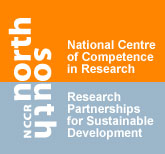 Look at http://www.sasnet.lu.se/links.html for an extensive list of links to South Asia related research institutions all over the world.
Look at http://www.sasnet.lu.se/links.html for an extensive list of links to South Asia related research institutions all over the world.
Many new links added, for example the NCCR (National Centres of Competence in Research) North-South, an innovative research programme in the fields of global change and sustainable development, jointly funded by the Swiss National Science Foundation and the Swiss Agency for Development and Cooperation. It is hosted by the Centre for Development and Environment (CDE), Institute of Geography, University of Bern, but also has a South Asia Regional Coordination Office in Kathmandu, Nepal.
Best regards, and a nice summer 2010
Lars Eklund
deputy director/webmaster
SASNET/Swedish South Asian Studies Network
SASNET is a national network for research, education, and information about South Asia based at Lund University. Its aim is to promote a dynamic networking process in which Swedish researchers co-operate with researchers in South Asia and globally.
The SASNET network is open to all the sciences. Priority is given to interdisciplinary cooperation across faculties, and more particularly to institutions in the Nordic countries and South Asia. SASNET believes that South Asian studies will be most fruitfully pursued as a cooperative endeavour between researchers in different institutions who have a solid base in their mother disciplines.
The network is financed by Lund
University.
Postal address: SASNET – Swedish South Asian Studies Network,
Scheelevägen 15 D, SE-223 70 Lund, Sweden
Visiting address: Ideon Research Park, House Alpha 1 (first floor,
room no. 2040), in the premises of the Centre for East and South
East Asian Studies at Lund University (ACE).
Phone: + 46 46 222 73 40
Fax: + 46 46 222 30 41
E-mail: sasnet@sasnet.lu.se
Web site:
http://www.sasnet.lu.se
SASNET - Swedish South Asian Studies Network/Lund
University
Address: Scheelevägen 15 D, SE-223 70 Lund, Sweden
Phone: +46 46 222 73 40
Webmaster: Lars Eklund
Last updated
2011-03-10
